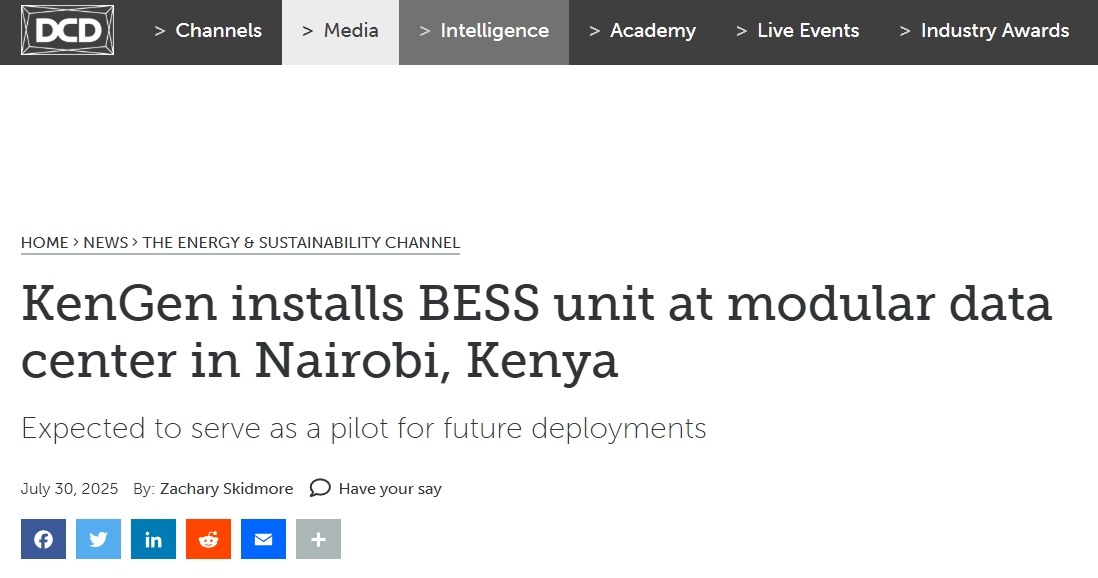Expected to serve as a pilot for future deployments
Kenya’s largest electricity company, Kenya Electricity Generating Company (KenGen), has commissioned a Battery Energy Storage System (BESS) to power its modular data center at its headquarters in Nairobi.
First reported by the Citizen, the system, which has a capacity of 1.16MWh, will serve KenGen’s 52kW modular data center, comprised of 356 U-spaces.
In a statement, the company said that the BESS is designed to supply stable electricity during periods of low grid demand, ensuring resilience.
“By integrating battery storage into our data infrastructure, we are not only reducing our carbon footprint but also showcasing how energy utilities can lead in sustainable innovation,” said KenGen’s managing director and CEO, Peter Njenga.
The BESS is expected to serve internal operations and also act as a pilot for future use of storage systems at similar modular data center sites across the country.
BESS has been deployed in a myriad of ways across the data center sector. In 2023, Microsoft, in partnership with Saft, deployed a BESS system at its Stackbo data center in Sweden to displace the use of backup diesel generators. The system provides 16MWh of storage and provides 80 minutes of backup power.
Last year, Keppel announced it would install BESS systems at two of its Dublin data centers to improve power quality on site.
BESS is even being explored as a prime power option for data centers. Last year, Energy Vault partnered with RackScale Data Centers (RSDC) to deploy its proprietary B-Nest BESS at RSDC-operated data center sites. B-Nest is a modular multi-story structure designed to house stackable lithium-ion BESS units. The company claims the technology can store up to 1.6GWh per acre, providing data centers with full primary power for more than ten hours.








